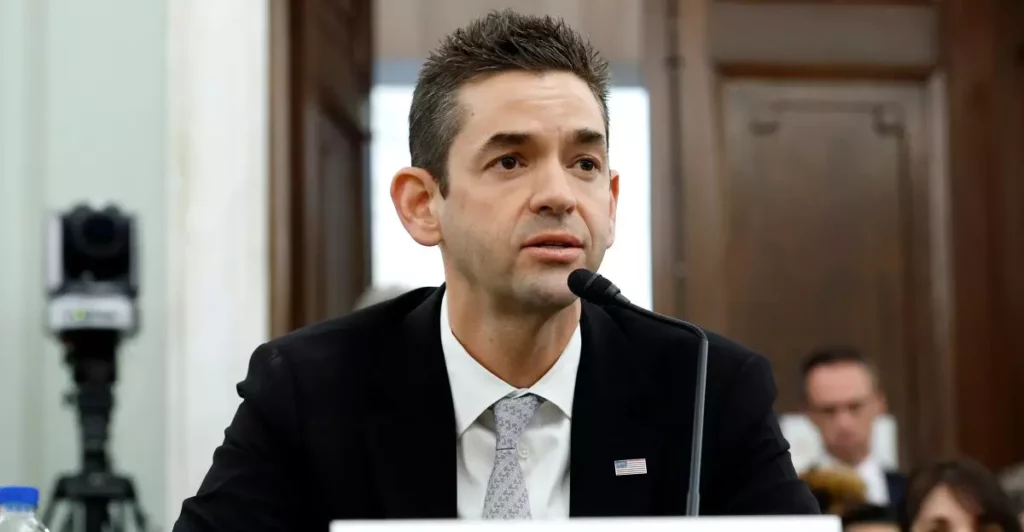The withdrawal of Jared Isaacman’s nomination for NASA Administrator has served as a wake-up call—one that exposes the unsettling dynamic between the political and scientific realms. Isaacman, a billionaire entrepreneur recognized for his role in transforming space travel through initiatives with SpaceX, seemed like a prime candidate to spearhead a new chapter for NASA. However, his candidacy fell victim to a bitter political atmosphere stemming from his past contributions to Democratic campaigns. This incident illustrates a disheartening reality: the scientific aspirations of space agencies can be eclipsed by the partisan whims of the moment. In an ideal world, the head of a leading scientific institution like NASA would be chosen based on vision and merit, not political allegiances. It is alarming to think that genuine advancements in space exploration could be sidelined due to the financial loyalties of a nominee, particularly in an arena meant to be driven by innovation and collaboration.
The Stranglehold of Political Allegiance
The insistence that candidates align with the prevailing political ethos raises significant questions about the direction of NASA and the broader realm of scientific inquiry. Shouldn’t the mission to explore the cosmos transcend mere party lines? The reality is that innovation thrives in environments rich with diverse thoughts and ideas, yet the cyclical nature of our political landscape often undermines this foundational principle. By tethering NASA’s leadership choices to partisan considerations, we risk stifiling the very ingenuity that has propelled humanity toward groundbreaking discoveries. It is vital to challenge the notion that an effective NASA Administrator must mirror the administration’s political beliefs—a practice that not only narrows the pool of applicants but also detracts from NASA’s core mission of exploration.
Budget Cuts: A Scientific Catastrophe in the Making
Compounding the issue of political allegiance, the announcement of substantial budget cuts to NASA evokes further concern about the long-term health of our space programs. A staggering proposed 47% reduction in funding for crucial scientific initiatives paints a distressing picture for the future of space exploration. Critics have rightly labeled these cuts as an “extinction-level event” for NASA’s scientific capabilities, suggesting that the repercussions will extend far beyond immediate fiscal savings. In an era where exploration requires substantial investment, compromising funding translates to relinquishing opportunities that spark technological innovation and educational outreach.
NASA’s vision has historically been synonymous with pioneering advances in science and technology, yet the current trend appears poised to transform it into a commercial endeavor primary focused on profit margins rather than exploration and scientific discovery. The consequence of such financial contraction is palpable; as public investment wanes, the innovations that once captivated our imaginations may vanish, sacrificed on the altar of short-sighted political motivations.
The Dangers of a Politically Driven Nomination Process
Space policy analysts have warned that allowing political affiliations to dictate NASA’s leadership choices creates a hazardous precedence. How can we expect to achieve ambitious goals in space travel when our leaders are selected based on their ability to align with partisan agendas? This situation has fatal implications for the agency’s direction and its commitment to discovery. The reality is that, to confront the complexities of space exploration, we require leadership that is both visionary and independent from the chaotic tides of political influence.
What we need is a space agency that prioritizes exploration, scientific integrity, and a commitment to advancing the frontiers of knowledge. The vision of pushing humanity forward in the exploration of outer space should not be ensnared by an algorithm of political alignment. Instead, NASA’s leadership must emerge from a diversity of experience, qualifications, and innovative thought.
The Need for Visionary Leadership
If critics of the current state of affairs at NASA are to be believed, the agency may soon find itself fumbling in the dark as it grapples with the absence of strong leadership unshackled from political pressures. Former NASA officials echo this sentiment—they project a future where the moon landing and the Mars exploration ambitions remain just that, ambitions with no feasible groundwork laid due to a lack of visionary stewardship.
Conversations about the future of space exploration should unite us as a species, inviting collective advocacy for investments in science that enhance our collective future. As we navigate the crossroads of ideology and exploration, the urgency for conflict-free, innovative leadership to guide NASA has never been more pressing. In a time when the exploration of space should serve as a hallmark of our civilization, our representatives must prioritize the pursuit of knowledge over partisan gain—because the exploration of space is not merely the province of politics; it’s humanity’s next chapter.









Leave a Reply